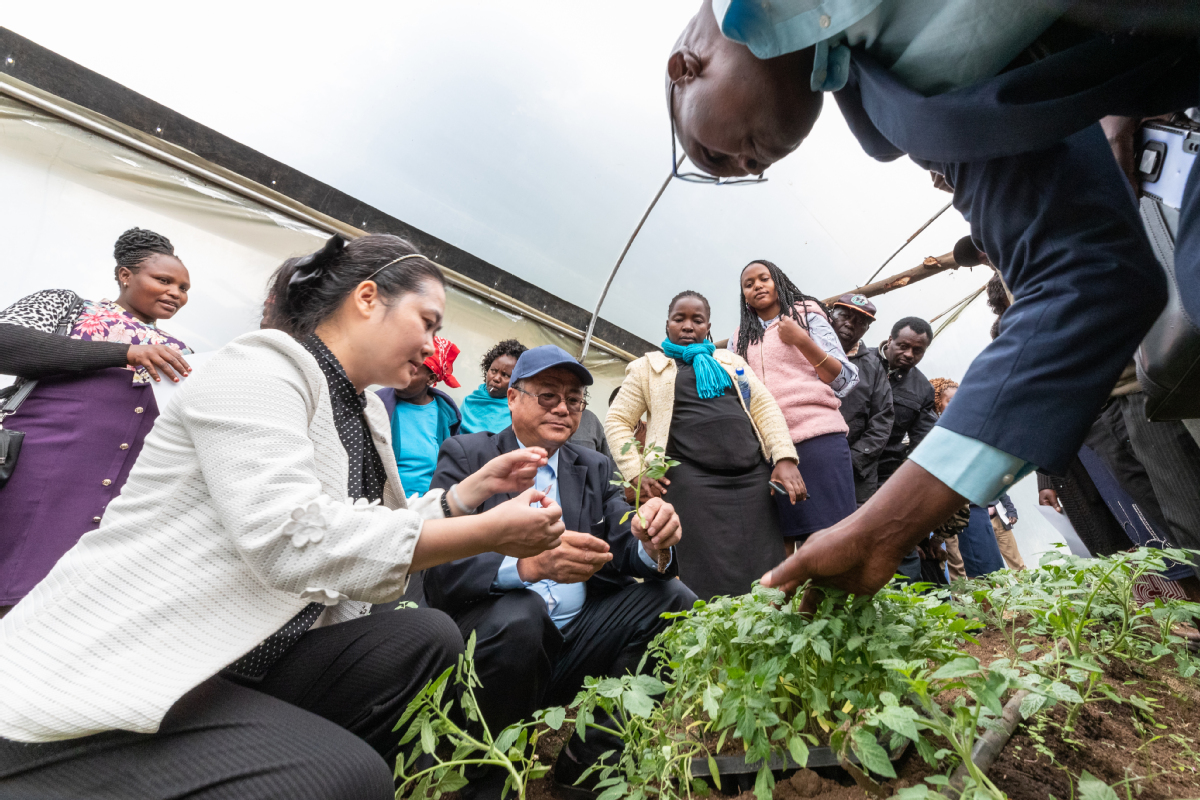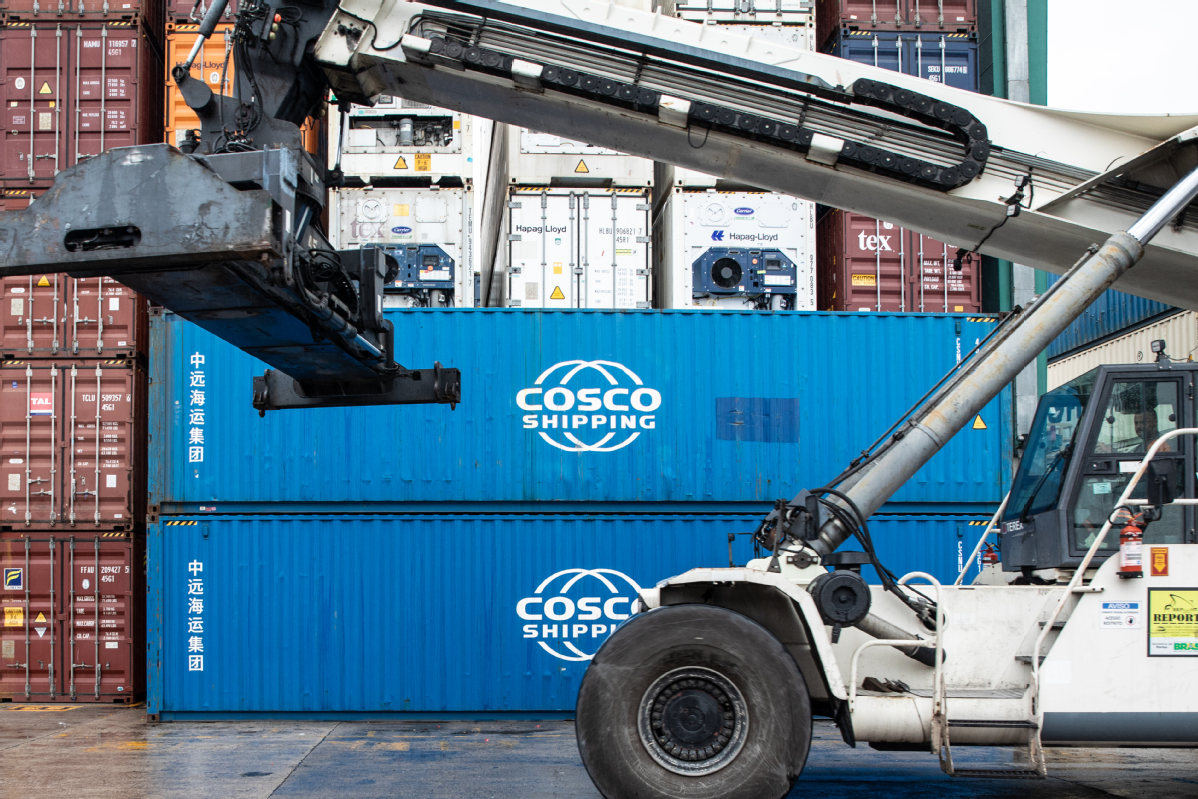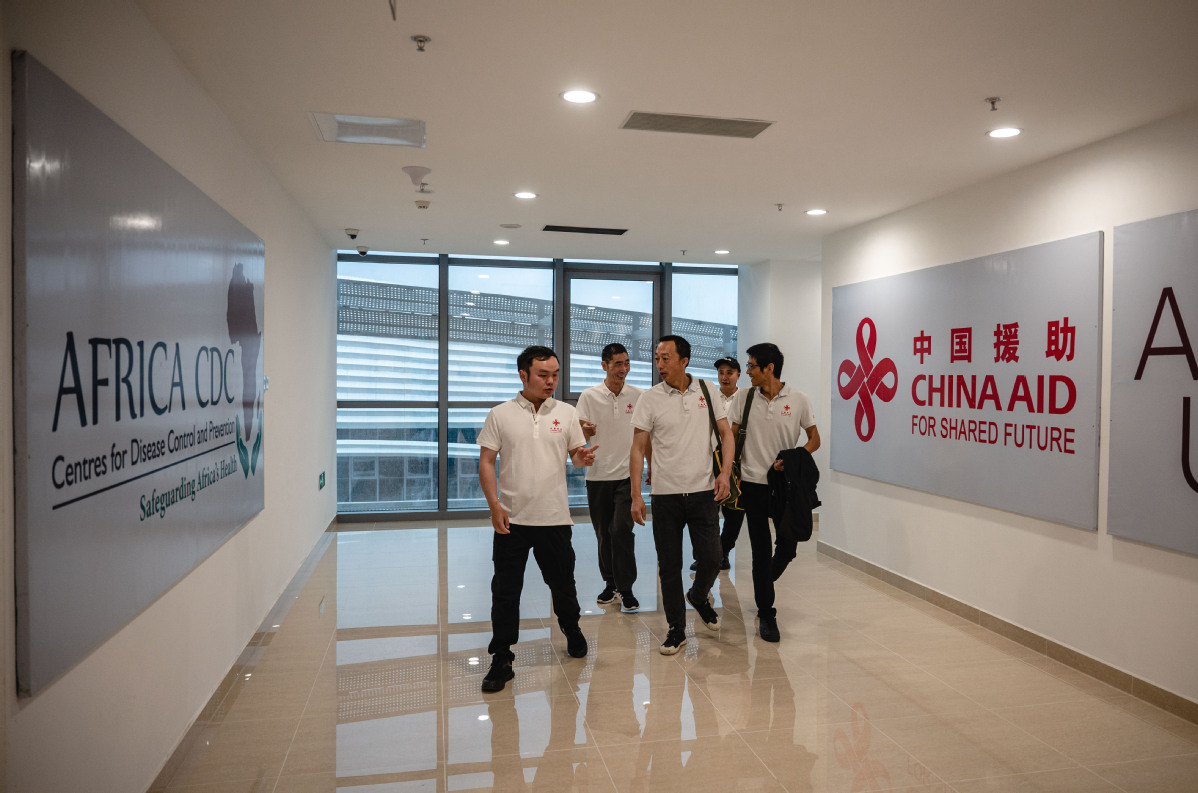Global South strives to bring new changes on world stage


Expansion of emerging economy groups serves as restraint on hegemony, power politics, observers say
Editor's note: In a world fraught with turbulence and amid the rising tides of unilateralism and protectionism, emerging economies and developing countries are stepping up to assert their influence on the world stage. This page analyzes how this evolved inclusivity may redefine global governance, economic growth, sustainability and more.
The expansion of BRICS and G20 groups signifies that the Global South, comprising emerging market economies and developing countries, is striving to bring about transformative changes on the world stage, global observers say.
Amid a world characterized by turmoil and complexity, developing countries are actively engaging in global governance with a more positive attitude, strengthening the forces of multilateralism. This also benefits international cooperation in tackling various challenges and serves as a restraint on hegemony and power politics, they said.
G20 members granted permanent membership to the 55-member state group African Union at the inaugural session of the summit held in New Delhi earlier this month.
Just a few weeks earlier, BRICS, the grouping of major emerging economies of Brazil, Russia, India, China and South Africa, agreed to invite six additional countries — Argentina, Egypt, Ethiopia, Iran, Saudi Arabia, and the United Arab Emirates — to become full BRICS members on Jan 1, 2024, while there are still close to 20 countries on the waiting list.
Clayton Hazvinei Vhumbunu, a senior lecturer in the department of political studies and governance at the University of the Free State in South Africa, said the Global South has been using various platforms to push for inclusivity and reforms in critical institutions of global governance, such as the United Nations Security Council, International Monetary Fund, World Bank, G20 and others for many years. The BRICS expansion and the inclusion of the AU may be interpreted as "rays of hope for the Global South".

"The expansion of BRICS and G20 may be a step toward the realization of fairness and justice for the Global South that has endured decades of exclusion, marginalization and underrepresentation on almost all critical forums that shape global governance, development, peace and security agenda," he said. For a long time, the Global South, Africa specifically, has been infantilized as a political and economic midget on the international arena, he added.
The admission of the AU into G20 also provides a voice for the 55 AU member countries so that their needs, strategic interests and priorities get a chance to be reflected in G20 decisions, he said. These decisions pertain to sustainable economic growth and development, infrastructure development, climate change, global financing, technological transformation, digitalization and innovation, gender and women empowerment, migration, peace and security matters, among others.
"While the inclusion of the AU does not automatically translate into influence, impact and effectiveness in shaping the form, content and direction of the global agenda, what matters in multilateral diplomacy is to gain a voice first and be heard," he said.
Xu Liping, a researcher at the Chinese Academy of Social Sciences' National Institute of International Strategy, said the adoption of new members in multilateral institutions is important for several reasons.
First, the current international situation is characterized by instability and uncertainty, particularly with the United States adopting a unilateral approach, promoting hegemony, and the continuous appreciation of the US dollar has caused significant damage to the global economy.
Additionally, the Russia-Ukraine conflict has had a substantial impact on the world, including pushing up global commodity prices, exacerbating food security risks and increasing the debt repayment pressure on developing countries, he said.

"In this context, the era of relying on traditional major powers to exert effective global governance is gradually fading away. Now, an increasing number of countries from the Global South demand independent development, and they have begun to independently express their positions on almost all major global issues and make active participation in addressing global challenges," he said.
Xu cited the example of a delegation consisting of leaders and senior officials from seven African countries offering a peace proposal to Russia and Ukraine in June, which included unimpeded grain exports through the Black Sea, and de-escalation on both sides.
Prominent role
"This is rare in history," he said. "It also showed that in global governance, the role of the Global South is becoming increasingly prominent, and the inclusion of these developing countries could bring about better effects in governance."
With more Global South countries participating in global governance, it will bring more diversity and multidimensionality to the world. While there will still be forces trying to create "small yards and high fences", there will also be other forces that will unite peoples and nations, said Edward Tse, founder and chairman of Gao Feng Advisory Company.
For instance, the enlarged BRICS grouping represents more than 40 percent of the world's population, 25 percent of the global gross domestic product, and one-third of the planet's economic growth. It has the world's largest manufacturing powerhouse (China), along with major oil- and gas-producing nations (Saudi Arabia, Russia, Iran and the UAE).
Countries, especially those in the Global South, are increasingly capable of upgrading their overall competitiveness. Many nations that may rely primarily on their natural resources for exports, could get into manufacturing, he said.
Xu said the developing countries' participation in global governance is also indispensable for global development.
"Emerging economies, as well as the vast number of developing countries in the Global South, have a strong and young labor force population, abundant economic vitality, and show a trend of continuous and sustainable economic growth," he said. "Therefore, Global South countries, especially represented by China, are actually indispensable in global governance."
However, the desire of new members to join the institution increases the need to transform diplomatic actions into concrete actions to benefit the populations of the group's countries, said Ronnie Lins, director of the China-Brazil Center for Research and Business.
China, which has the most efficient planning in the world, can contribute so that the institution can define common objectives for members to benefit individually and in building a more prosperous global environment with fewer social inequalities, he said.
Just as the global context requires changing the countries' ways of thinking, the same thing must happen with international organizations, Lins said.
"The strengthening of the countries of the Global South should generate relevant changes in the objectives and constitutions of many international organizations," he said. "This adequacy effect will have a significant impact on world order. It will cause necessary changes to previously existing objectives and actions in these organizations."
Although Global South countries are willing to participate more in global governance, they are quite different from traditional Western camps such as G7 and NATO.
Tang Xiaoyang, dean of the Department of International Relations at Tsinghua University, said G20 and BRICS countries are still relatively loose and are very different from G7 or NATO, which have strict and mature institutions. Therefore, the Global South's participation is more of a demonstration of influence, but whether it can really play an effective role in the future is still unclear.
Collective interests
Vhumbunu, from the University of the Free State, said the main objective of the Global South joining multilateral organizations and the key motive behind the formation of camps such as G7 and NATO by Western countries are essentially the same — both are driven by a desire to advance collective national, continental or regional interests.
However, the fundamental difference lies in the fact that the Global South is mainly concerned with economic breakthrough and collective growth that they believe will be delivered through the reform of the major institutions of global governance and more active and meaningful participation in multilateralism, he said. The Western countries are obviously united by the desire to maintain and sustain the global power status, in economic, military, strategic and political terms, in light of intensifying global geopolitical competition, said Vhumbunu.
The Global South signifies a global trend in which developing countries unite and strive for development as a common goal, said Xu, from Chinese Academy of Social Sciences. It represents a major global trend of jointly promoting development and strengthening self-reliance.
China has been pushing for more Global South countries to join the global governance platform to better address global challenges, he said. The African Union's membership in the G20 and the expansion of BRICS are also closely related to China's active promotion. In the future, an increasing number of Global South countries will inevitably participate in global governance.
Therefore, the attempts by Western countries in recent years to isolate China will not work, and their policies of containing China's development will be difficult to sustain, he added.
























